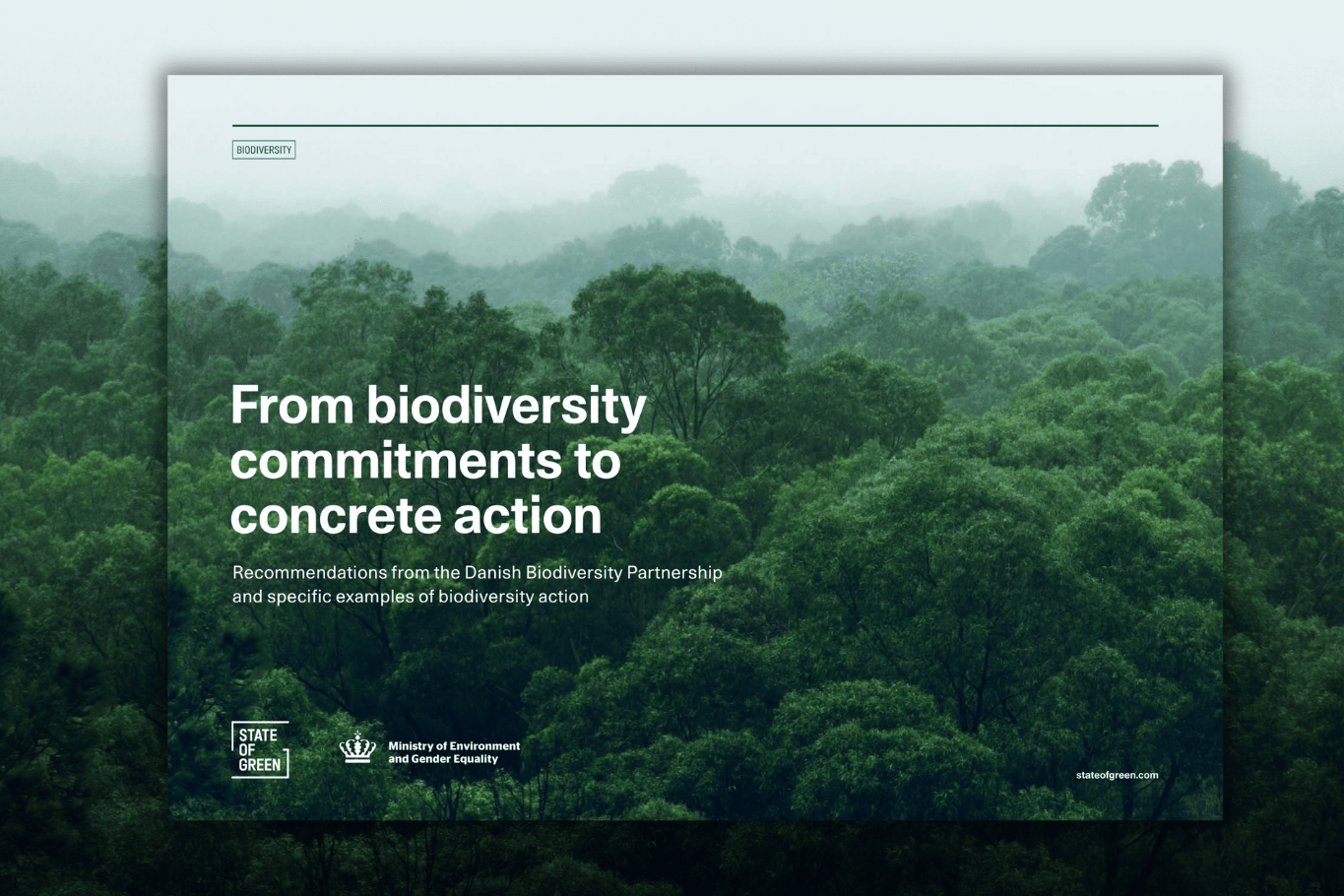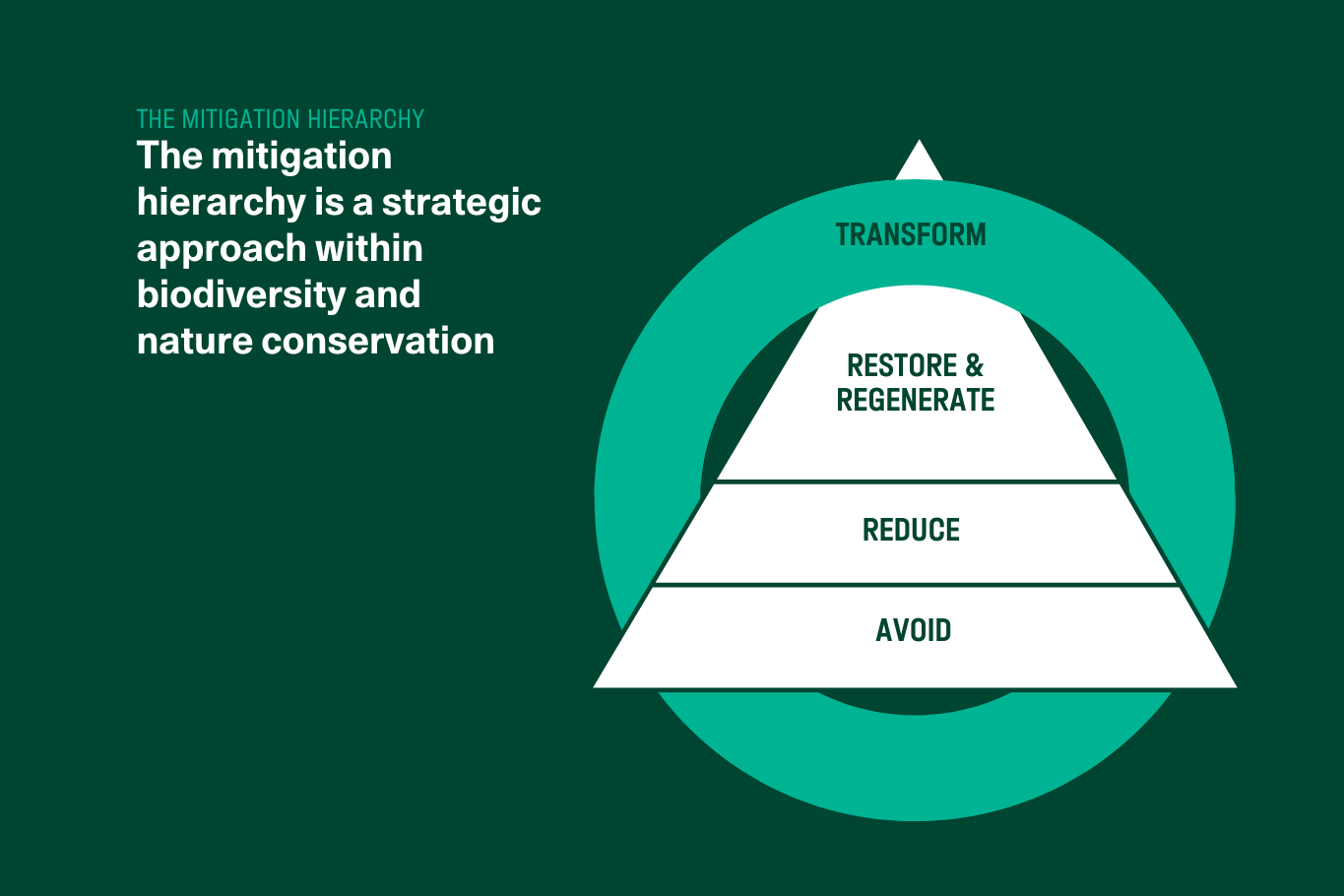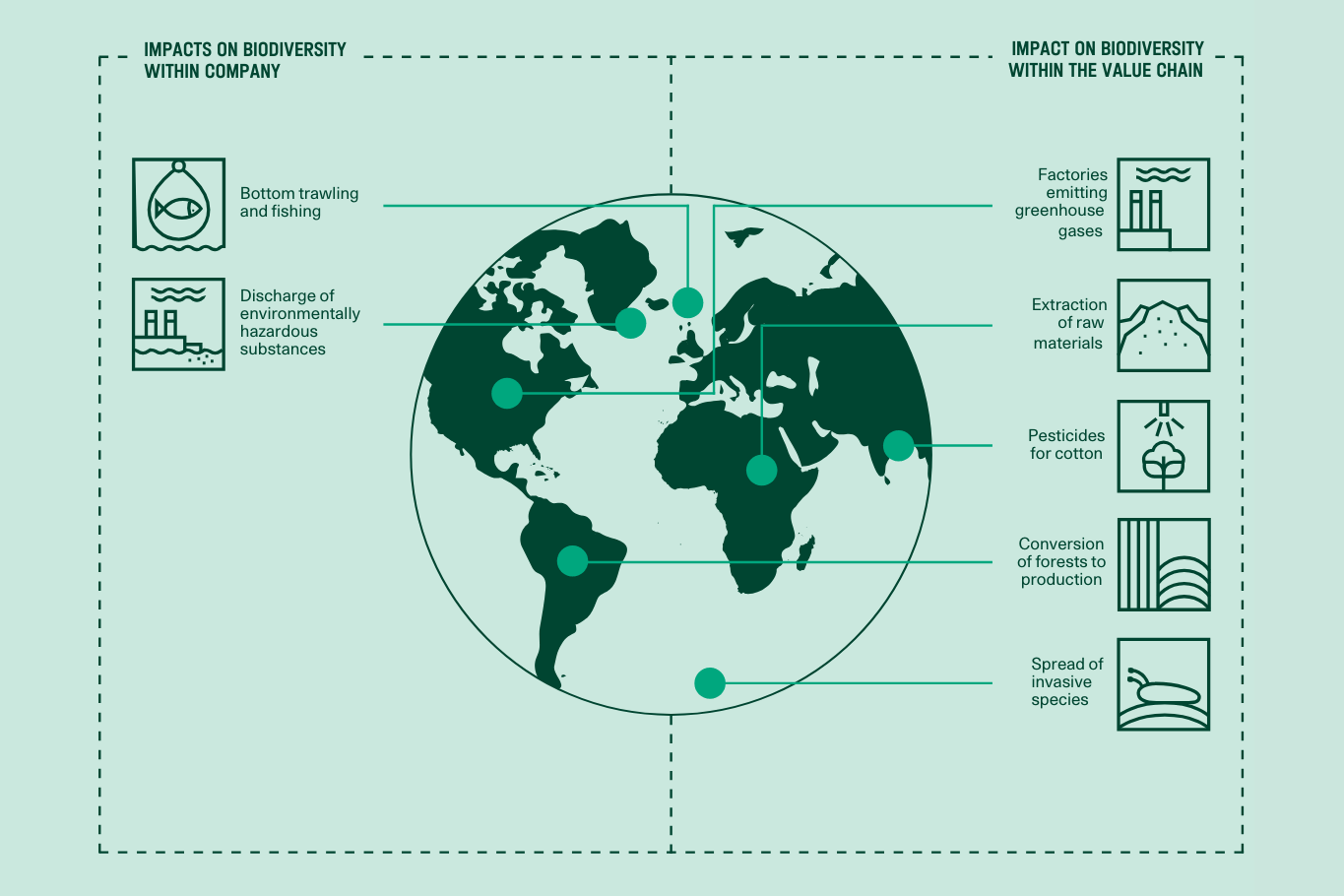From biodiversity commitments to concrete action
Download the publication to discover recommendations from the Danish Biodiversity Partnership and specific examples of biodiversity action.
Explore the publicationPerspective
Biodiversity
Biodiversity COP
Green financing
+1



Download the publication to discover recommendations from the Danish Biodiversity Partnership and specific examples of biodiversity action.
Explore the publicationThe Danish Biodiversity Partnership emphasises that all companies – both private and financial – can help reduce their own and their suppliers’ negative impact on biodiversity, both marine and terrestrial, while also contributing to nature restoration locally and throughout the value chain.
Corporate biodiversity efforts are crucial to improving conditions for biodiversity and securing more space for nature. These efforts also help future-proof companies and industries that rely on biodiversity for production and economic value. In the future, effective biodiversity actions could also become a key competitive advantage.
The mitigation hierarchy is a strategic approach to biodiversity and nature conservation.

There is no universal method to assess, measure, and account for biodiversity that covers all species, ecosystems or addresses the variety of company impacts on biodiversity. However, numerous methods and tools are available, some of which are industry-specific or national. Many others are still being developed.
Several international organisations are working on guidance tools and methodologies. The infobox below outlines three general tools and methods that companies can use to develop and enhance their biodiversity efforts.
Science-based Targets for Nature (SBTN) are science-based targets that guide companies on how best to organise biodiversity efforts. SBTN focuses on both minimising negative impacts and promoting positive actions to maintain ecosystem function and biodiversity.
The Taskforce on Nature-related Financial Disclosures (TNFD) are global recommendations for corporate reporting on impacts and dependencies on nature and biodiversity. The goal is to create consistency and transparency for investors, thus clarifying whether nature and biodiversity impacts and risks are included in investment portfolios.
The Biodiversity Risk Filter is a tool to help screen company activities and identify where a company has the greatest impact on or dependence on biodiversity. The tool ensures that companies prioritise the most meaningful biodiversity efforts. You can read more about corporate biodiversity efforts in general as well as SBTN, TNFD and Risk Filter in Preferred by Nature’s biodiversity partnership report.
Read more about tools and methods for biodiversityEach link in the value chain can affect different habitats and species, leading to varied impacts on biodiversity.
The complexity of a company’s impact and dependence on biodiversity can differ depending on its size, sector, value chains, and products. Similarly, the resources needed to implement biodiversity initiatives can vary – depending on industry or size, for example. Therefore, guidance and support from authorities, knowledge institutions, and industry bodies are vital to help companies advance their biodiversity efforts.
Companies can have both biodiversity impacts and dependencies within their own operations and across their value chain.

Corporate biodiversity initiatives must contribute to promoting both national and global biodiversity and support national and international objectives. Biodiversity is a new area for many companies, though some are already making significant progress with various initiatives.
The Biodiversity Partnership encourages companies to identify their impacts and dependencies on biodiversity, minimise or avoid negative impacts, contribute to protection, restoration and the overall progress of biodiversity.
As part of their work, The Biodiversity Partnership has outlined key recommendations for both non-financial companies and financial institutions to consider in their biodiversity strategies. Explore them below.
Non-financial companies have a crucial role in protecting biodiversity. By managing their impact, they can contribute to global conservation efforts and strengthen their sustainability. The following approach offers practical guidance for companies to assess and reduce their biodiversity footprint.
The recommendations from the Danish Biodiversity Partnership come at a time when many companies are already taking action. Numerous initiatives are in place to enhance biodiversity and help halt its loss, supporting plants, animals, and ecosystems for the future. However, the recommendations emphasise the need to approach biodiversity efforts in a more systematic way.
Explore examples of how Danish companies are engaging with biodiversity below.
Financial institutions are key players in driving biodiversity protection. By integrating biodiversity considerations into their operations and investments, they can influence positive change across industries.
The following steps outline how financial institutions can support global conservation efforts and promote sustainable practices.
Financial institutions play a key role in promoting biodiversity by integrating nature-positive practices into their investment and lending strategies. These efforts help protect ecosystems and support global biodiversity goals.
While many financial companies are already making progress in this area, the recommendations from the Danish Biodiversity Partnership emphasise the need for a more systematic approach to further enhance impact.
Explore examples of how Danish financial companies are driving global biodiversity efforts below.